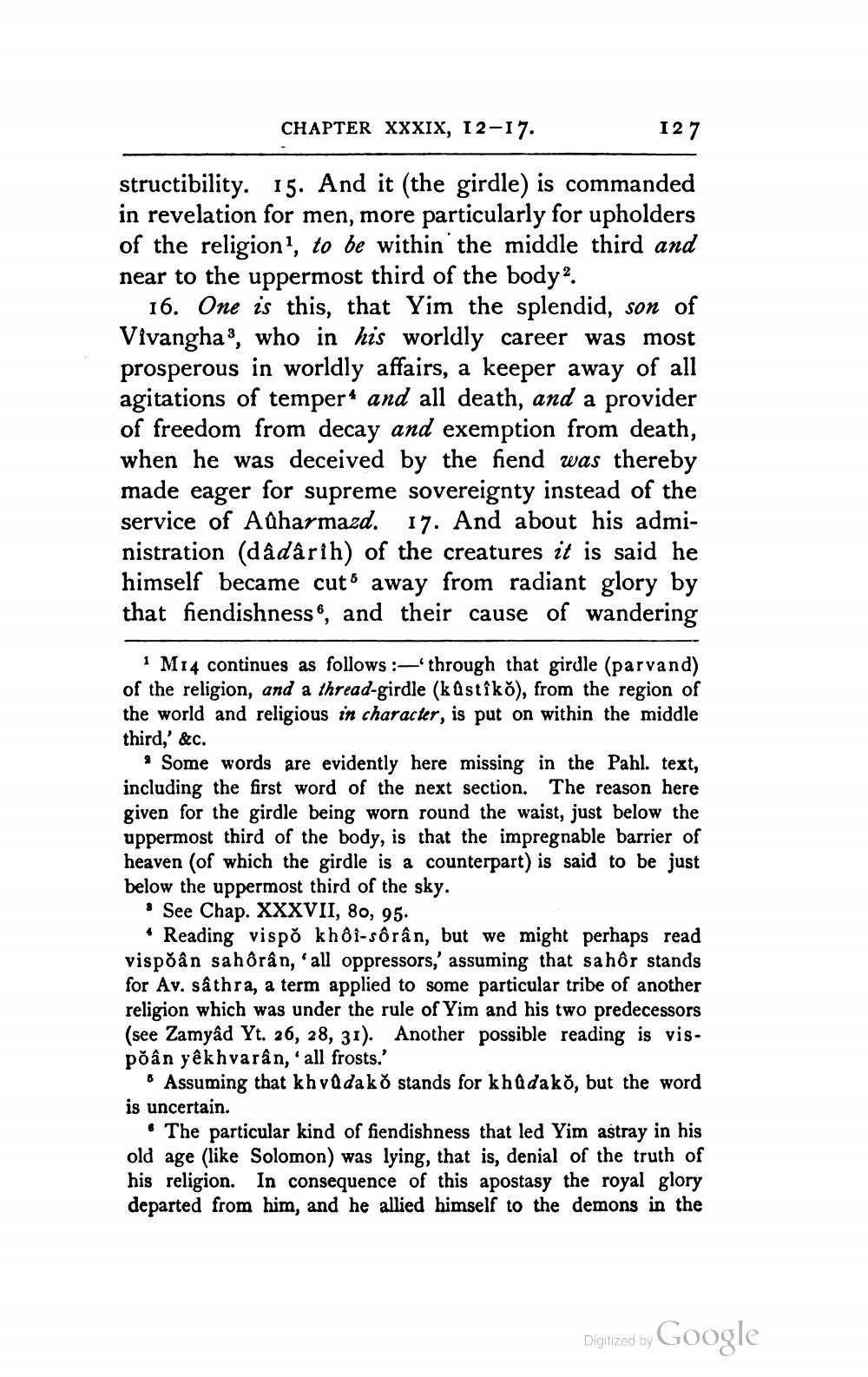________________
CHAPTER XXXIX, 12-17.
127
structibility. 15. And it (the girdle) is commanded in revelation for men, more particularly for upholders of the religion?, to be within the middle third and near to the uppermost third of the body2.
16. One is this, that Yim the splendid, son of Vivangha>, who in his worldly career was most prosperous in worldly affairs, a keeper away of all agitations of temper* and all death, and a provider of freedom from decay and exemption from death, when he was deceived by the fiend was thereby made eager for supreme sovereignty instead of the service of Allharmazd. 17. And about his administration (dâdârih) of the creatures it is said he himself became cuts away from radiant glory by that fiendishness, and their cause of wandering
1 M14 continues as follows :—through that girdle (parvand) of the religion, and a thread-girdle (kûstîko), from the region of the world and religious in character, is put on within the middle third,' &c.
9 Some words are evidently here missing in the Pahl. text, including the first word of the next section. The reason here given for the girdle being worn round the waist, just below the uppermost third of the body, is that the impregnable barrier of heaven (of which the girdle is a counterpart) is said to be just below the uppermost third of the sky.
• See Chap. XXXVII, 80, 95.
• Reading vispõ khôi-sôiản, but we might perhaps read vispõân sahôrân, all oppressors,' assuming that sa hôr stands for Av. sâthra, a term applied to some particular tribe of another religion which was under the rule of Yim and his two predecessors (see Zamyâd Yt. 26, 28, 31). Another possible reading is vispõân yêk hvarân, all frosts.
Assuming that kh vûdako stands for khudako, but the word is uncertain.
The particular kind of fiendishness that led Yim astray in his old age (like Solomon) was lying, that is, denial of the truth of his religion. In consequence of this apostasy the royal glory departed from him, and he allied himself to the demons in the
Digitized by Google




